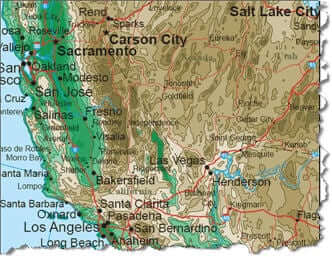A social media strategy shouldn’t be a list of action items. It’s bigger than that.
It’s a common enough mistake: You jump into social media because you want to increase sales, but all you really have is a list of tactics. Give away product samples on Facebook. Develop a twice-weekly blog. Set up a customer response Twitter feed.

Those are all fine things to do, and they may well contribute to your sales totals. But start by thinking in the long term. What is your social media strategy?
Tying social media efforts to actual sales is tricky. We’ll explore that in later posts, but for now, you need to be very clear on the why and what, and leave the how for later. Once your strategy is in place, it will be easier to develop action steps.
You’ll have to ask yourself many questions. Find the answers, and you’ll have made a good start.
- What are your primary objectives? Are you trying to build awareness of your brand? Boost sales? Educate prospects? Enhance your expert credentials? Expand your online presence?
- How does your social media strategy fit in with your overall business strategy? Social media sites provide engagement, sales and marketing, educational, public relations and customer support tools. So your social media strategy should be a subset of a larger department or division – maybe even more than one if you’re a sizable operation. In your case it would be Sales, but should Communications have its own? Marketing? Administration? All of them?
- Who is your target audience, and where do they live online? What groups are you trying to reach, and where do they tend to congregate?
- Which employee(s) will own your social media activities? Who will be responsible for implementation? What will the reporting structure be like?
- Who are your competitors and how can you set yourself apart from them? Who else is out there, and what are they doing? How are people responding? Do you want to use similar tactics or look for ways to stand out?
- What will your primary messages be? Once you get down to actually implementing your strategy using social media tools, you’ll want to think in terms of creating an online persona. What do you want people to see? Think of five terms to describe your company and work from there.
- When – and how – will you evaluate your social media strategy? Social media interaction can translate into sales; this connection is very obvious in some cases. But in your analysis, try to look at some of the “softer” results, too. Are you getting helpful suggestions from customers? Noticing that the load on the customer service phones is lighter? Finding that your educational content is reducing returns and complaints? All of that can mean a more positive cash flow.
Planning Your Journey

There are many ways to get from Los Angeles to Salt Lake City. The end result, of course, is that you end up in Utah. But what’s important to you about thetrip? Seeing historical sites along the way? Getting there quickly? Finding the cheapest way to go?
We create strategies all the time for things we want to accomplish. Building a social media strategy for your salespeople requires a lot of soul-searching, but it will make your decisions about what to actually do online simpler and clearer.
